Cancer
Definition: – A condition characterized by abnormal cells that do not function usefully in the body, thereby destroying normal body tissues (Barrett, 2013).
Cancer facts
- Cancer is the second leading killer in the United States.
- One out of four deaths result from cancer in the U.S.
- In 2011, the ACS approximates that about 572,000 million Americans died of cancer.
- In 2011, the ACS estimates that 1.6 million new cases of invasive cancer were discovered.
- No best single treatment so far, for all cancers.
- Each cancer has its unique characteristics.
- Cells are similar, hence difficult to kill abnormal cells and leave normal ones.
- No single solution is expected in the foreseeable future.
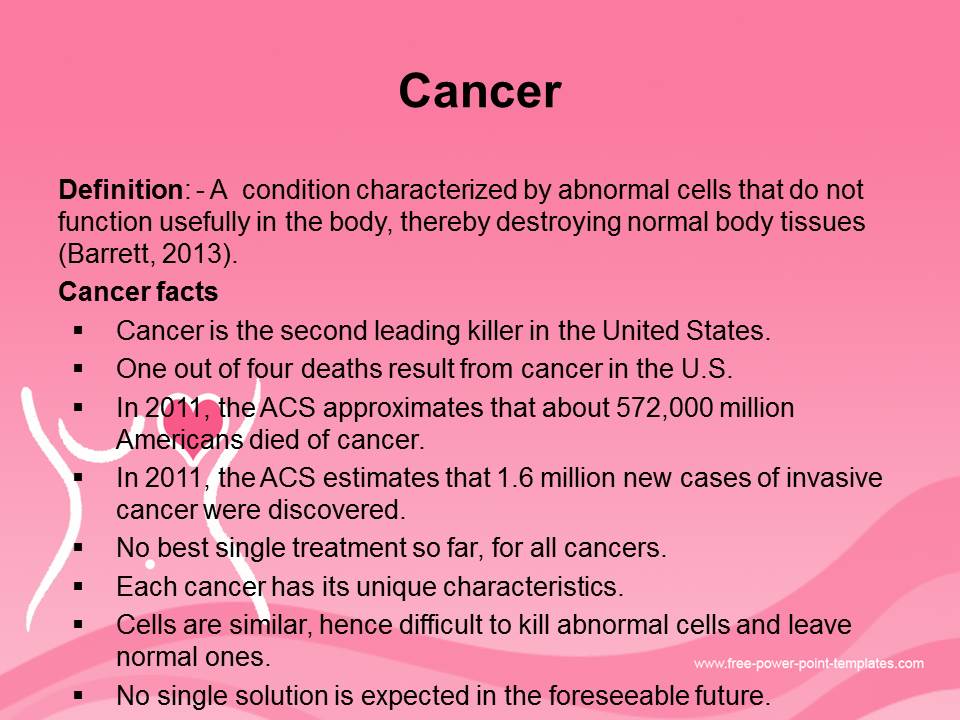
Cancer Risk Factors
Environmental:
- Tobacco smoking: – Responsible for 85% to 90% of lung cancer cases, mouth, pancreas, larynx, esophagus, and other organs.
- Excess alcohol consumption (increase risk for mouth, rectum, liver, esophagus cancers.
- Radiation – increase leukemia and skin cancers.
- Certain sexual patterns, infections, drugs, and/or occupational exposures.
- Pollution – Heavy chemicals such as benzene, asbestos increase cancer risk
Note:- Effect of diet on cancer is not clearly established although it is attributed to a number of cancers.
Genetic causes.
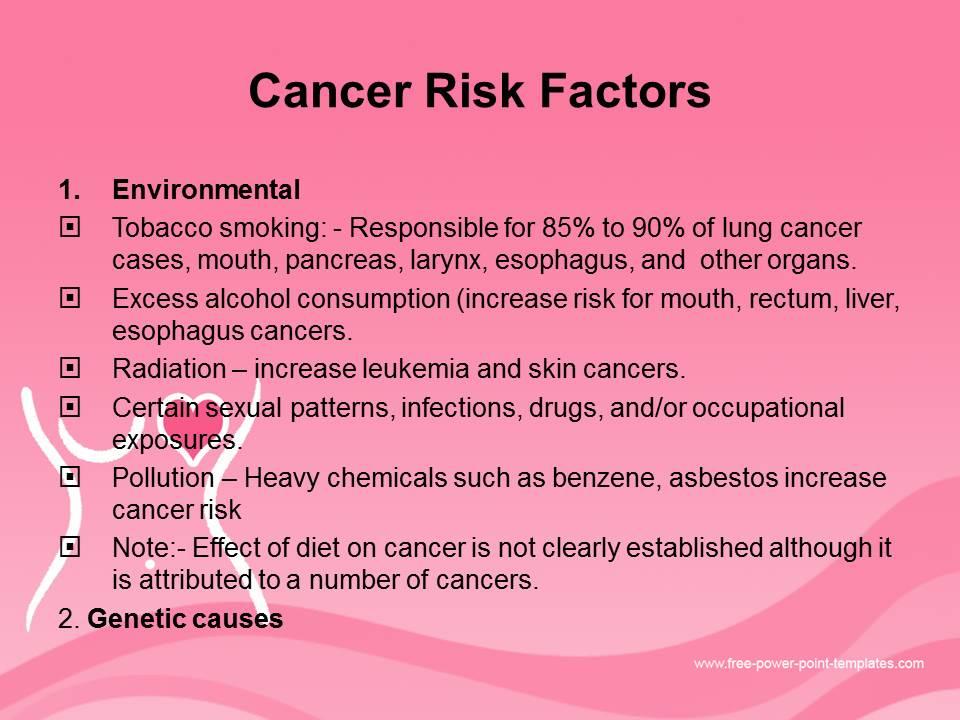
Preventive measures
Primary prevention:
- The most important measure taken before cancer occurrence;
- Avoid cigarettes and other tobacco products;
- Regular exercise;
- Avoid excess alcohol consumption.
Secondary:
- Periodic physical examinations,
- Pap smears,
- Colonoscopy,
- Mammography.
Note: Thermography and trans-illumination are not valid breast cancer testing techniques (Barrett, 2013).
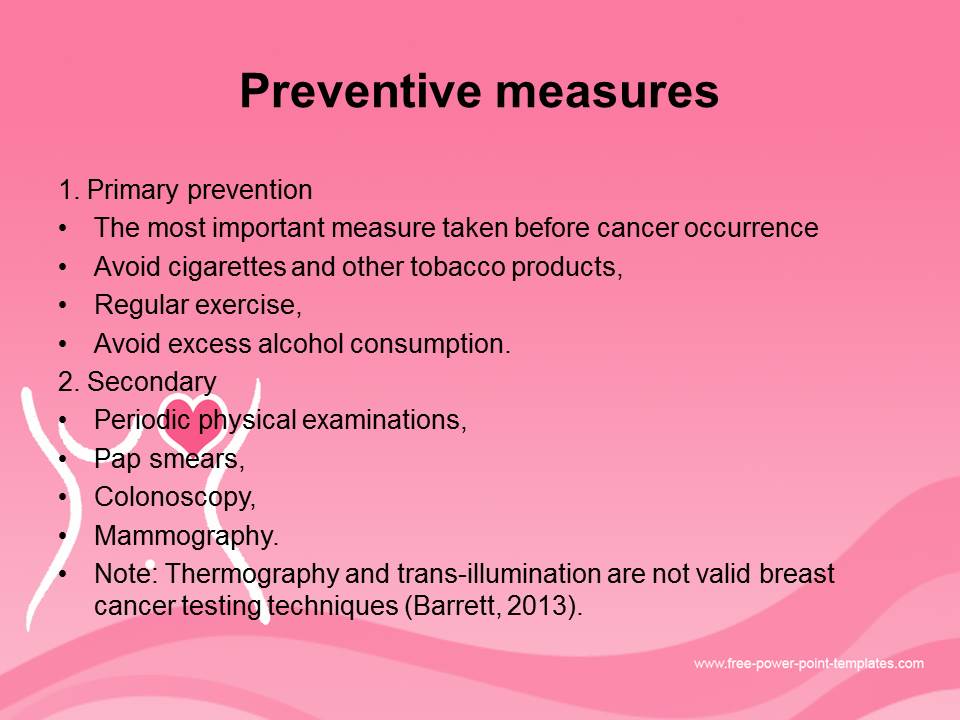
Evidence-based treatment methods
Surgery
- Used commonly for major cancer forms in the early stages.
- Involves tumor and cancer containing nearby tissue removal.
Radiation therapy
- Ionizing radiation used internally or externally.
- Destroys cancer cells.
- The high risk of destroying non-cancer cells.
Chemotherapy
- Increasingly becoming effective in treating cancer.
- Drugs attack cancer cell to prevent them from spreading to distance places.
- Curative doses have severe side effects.
Other: Photodynamic, Localized hyperthermia, Marrow transplants, interleukins.
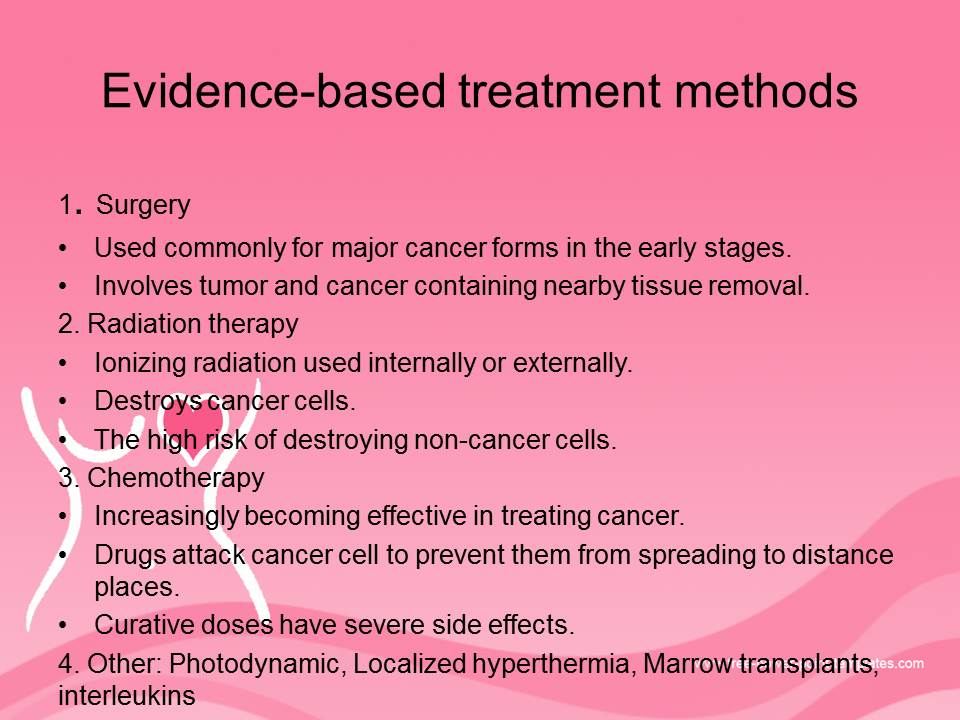
Susceptibility to cancer quackery
- The cancer field is susceptible to unproven fraudulent treatments.
- Questionable treatment methods used because of fear that cancer is incurable and costly to treat.
- Factors that influence cancer patient to seek unconventional treatment methods.
- Believing that cancer has been cured.
- Slow-growing cancer patients misrepresented as cured.
- Non-standard methods are explained in common-sense terms hence seem plausible.
- Promoters encouraging patient to believe they blame themselves because they are ill.
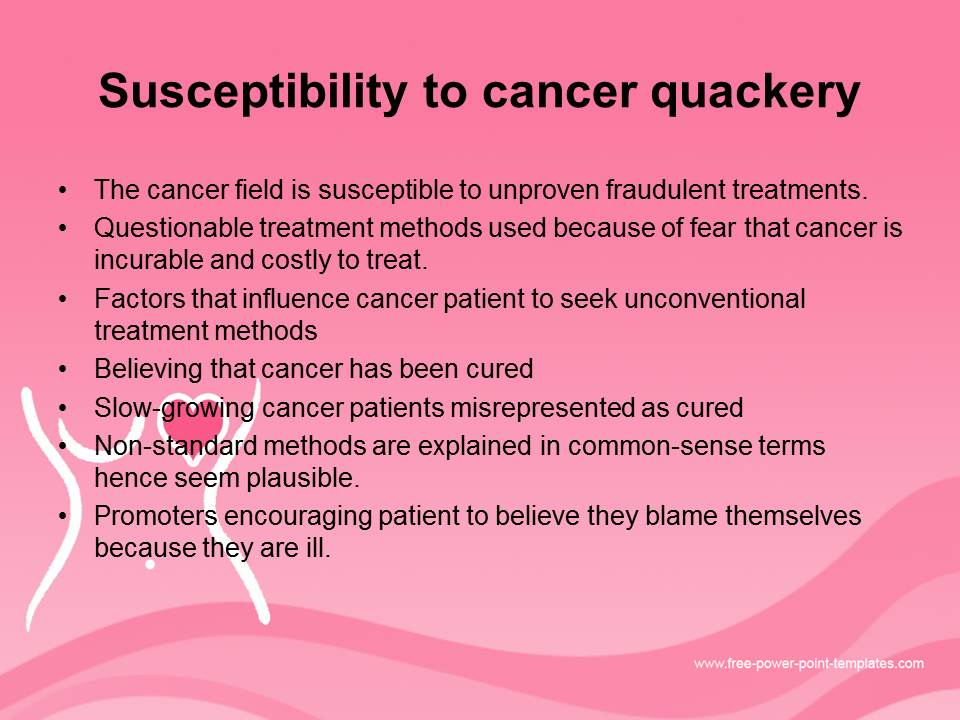
Questionable Methods
- Definition: – they are diagnostic tests that promote the general use of cancer prevention, treatment, and diagnosis which are not scientifically proven (Barrett, 2013).
- Cancer management includes:
- Corrosive agents,
- Plant products,
- Diets and dietary supplements,
- Drugs (Iscador),
- Correction of imbalances,
- Biological methods,
- Device therapy among others.
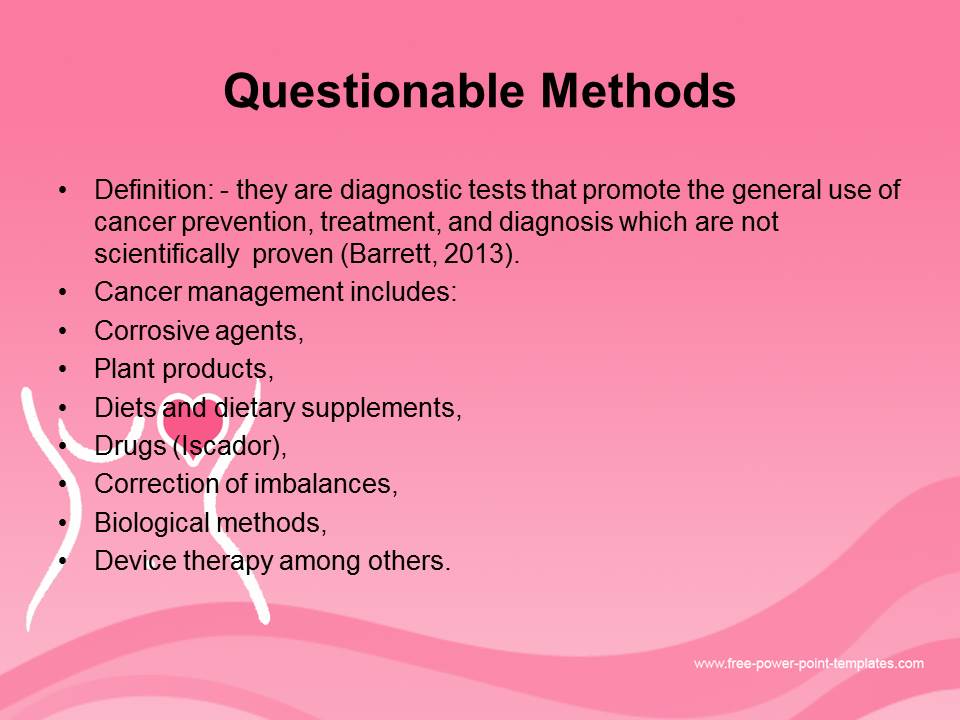
Promotion of questionable methods
Dubious information sources
- Personal contacts;
- Magazines and books;
- Proponent organizations;
- Commercial information services;
- Radios and television programs;
- Internet channels;
- Sponsorship from prominent individuals;
- Integrative cancer centers (Barrett, 2013).
Trustworthy Information sources
- NCI, ACS, and University of Pennsylvania Cancer Center Web Sites;
- ACS and NCI telephone queries, printed material;
- NCI computerized databases.
Consumer protection laws
- FDA fights fraudulent cancer treatment
The state licensing agency regulations of professional.
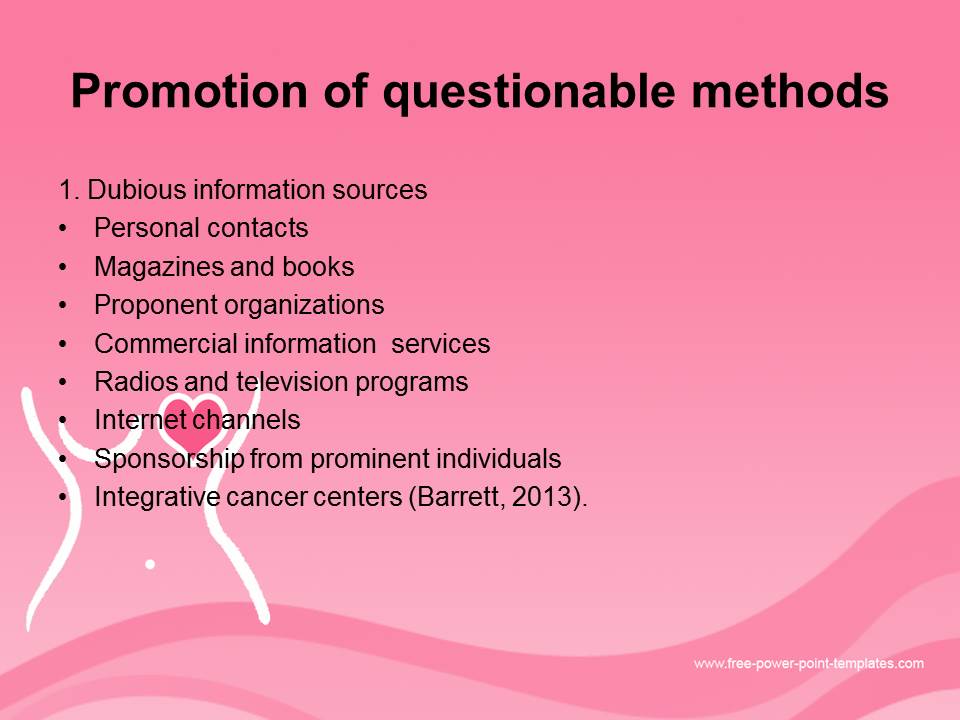
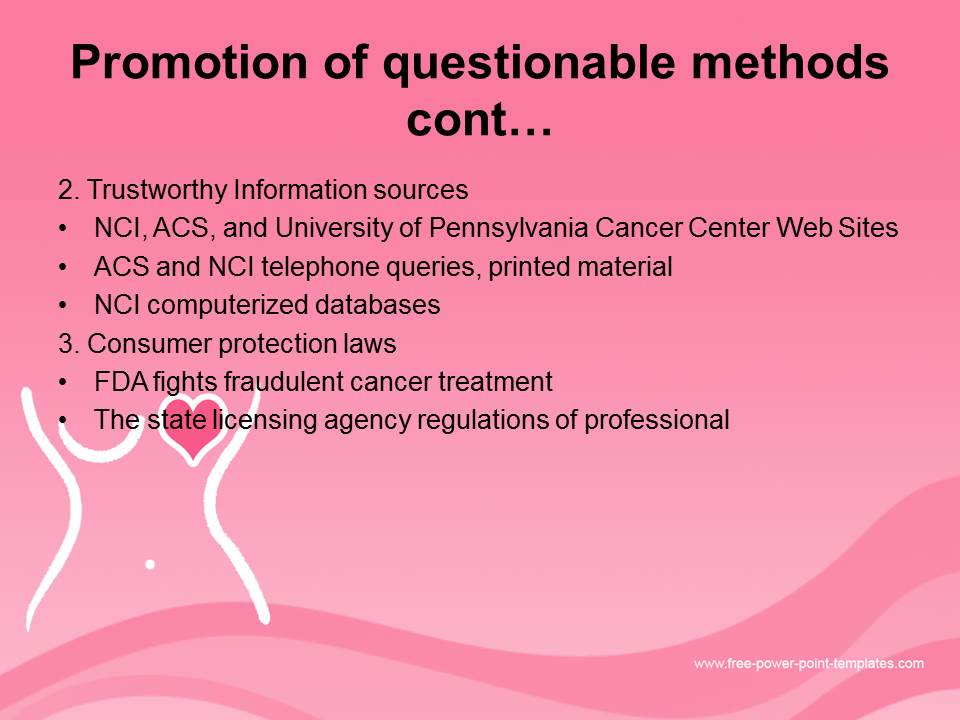
Reference
Barrett, S. (2013). Consumer health: A guide to intelligent decisions. New York, NY: McGraw-Hill.